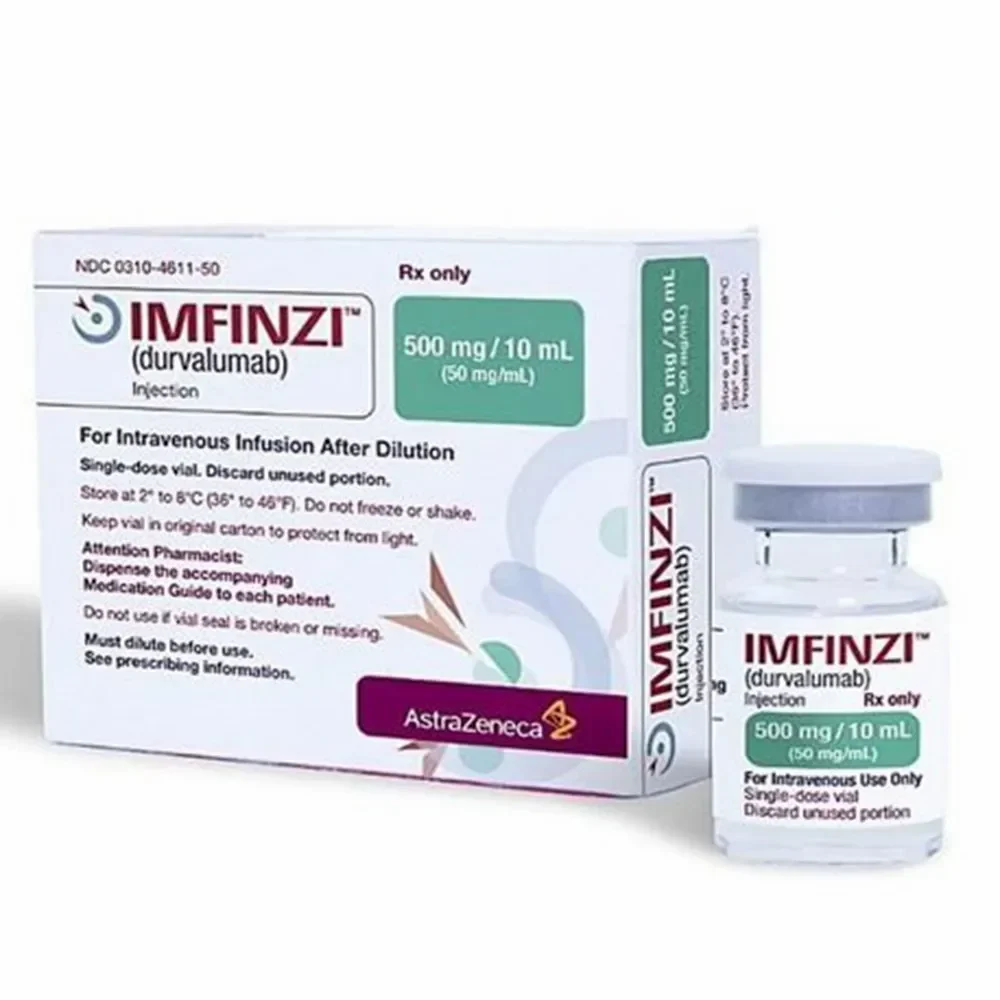AstraZeneca's Imfinzi On The Fast Track, Priority Review Marks A Milestone In Lung Cancer Treatment
FDA grants Priority Review to AstraZeneca's Imfinzi for LS-SCLC after positive ADRIATIC trial results.
Breaking News
Aug 16, 2024
Simantini Singh Deo

AstraZeneca’s submission of a supplemental Biologics License
Application (sBLA) for Imfinzi (durvalumab) has been accepted and granted
Priority Review by the U.S. FDA. This decision is supported by the positive
outcomes of the ADRIATIC Phase III trial, which focused on patients with
limited-stage small cell lung cancer (LS-SCLC) whose disease remained stable
following platinum-based concurrent chemoradiotherapy (cCRT).
Additionally, the FDA recently awarded Imfinzi Breakthrough
Therapy Designation (BTD). Small cell lung cancer (SCLC) is an extremely
aggressive type of lung cancer known for its rapid recurrence and progression
despite an initial positive response to chemotherapy and radiotherapy,
especially in LS-SCLC patients. The outlook for LS-SCLC remains grim, with only
15-30% of patients surviving beyond five years post-diagnosis.
Susan Galbraith, Executive Vice President, Oncology R&D,
AstraZeneca, said in a statement, “This Priority Review reinforces the
potential of Imfinzi to transform outcomes for patients as the first and only
immunotherapy to demonstrate a survival benefit in limited-stage small cell
lung cancer. There is an urgent need for new treatment options that improve
upon the standard of care in this setting, which has not changed in forty
years, and we look forward to working with the FDA to bring Imfinzi to patients
as quickly as possible.”
The supplemental Biologics License Application (sBLA) is
supported by findings from the ADRIATIC Phase III trial, which were recently
highlighted during the Plenary Session at the 2024 American Society of Clinical
Oncology (ASCO) Annual Meeting. In this trial, Imfinzi demonstrated a 27%
reduction in the risk of death compared to placebo, with an overall survival
(OS) hazard ratio (HR) of 0.73 (95% confidence interval [CI]: 0.57-0.93;
p=0.0104). The estimated median OS for patients receiving Imfinzi was 55.9
months (95% CI: 37.3-not estimable [NE]), compared to 33.4 months for those on
placebo (95% CI: 25.5-39.9). After three years, approximately 57% of patients
treated with Imfinzi were still alive, compared to 48% of those on placebo.
Imfinzi also decreased the risk of disease progression or
death by 24%, with a progression-free survival (PFS) HR of 0.76 (95% CI:
0.61-0.95; p=0.0161) compared to placebo. The median PFS was 16.6 months for
Imfinzi (95% CI: 10.2-28.2) versus 9.2 months for placebo (95% CI: 7.4-12.9).
At the two-year mark, 46% of patients on Imfinzi had not experienced disease
progression, compared to 34% on placebo. The safety profile of Imfinzi remained
generally manageable and consistent with its known characteristics, with no new
safety concerns identified.
